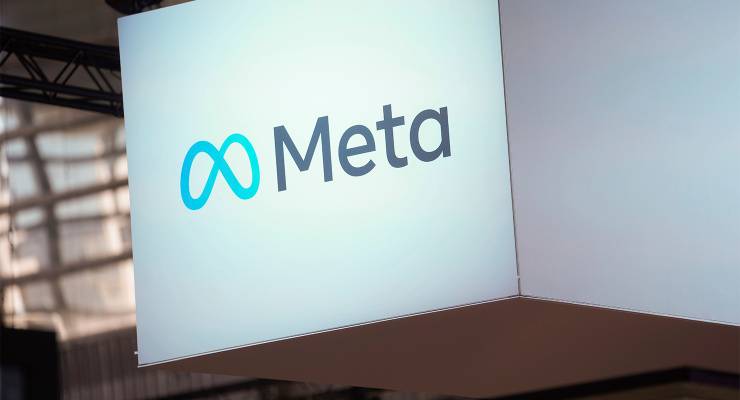
Last week, the Australian media industry jumped on a unity ticket, with several outlets coming together to advocate that the Albanese government enforce its news media bargaining code. The reason was tech giant Meta’s largely anticipated announcement that it wouldn’t be renewing its deals with Australian news publishers, negotiated in 2021 after the introduction of the code by the Morrison government.
When did the code come into practice, and why?
The proposal of the code, designed to force tech companies to pay publishers for the news media distributed on their platforms, initially saw Facebook respond by removing news from Australian feeds and restricting links for Australian viewers over five dystopian days in February 2021 while the Coalition scrambled to negotiate a new framework with Meta (owner of Facebook and Instagram) and Google.
The code that eventually passed saw the treasurer given the ability to “designate” tech companies as subject to bargaining obligations if they didn’t pass satisfactory deals with individual Australian publishers to pay for displaying news on their platforms.
Facebook, as well as Google, reached a number of voluntary agreements with Australian publishers, and subsequently were not designated under the code.
How much are the deals worth?
The deals have provided Australian media companies, including the ABC and Nine, with collectively up to $200 million, according to the government. They are due to expire in the next few months.
The Financial Review’s Sam Buckingham-Jones also published the contents of Meta’s expiring deal with Network Ten on Monday morning, with the summaries showing what social media managers around the country already knew: Facebook placed an outsized value on video content.
Ten’s deal was worth almost $14 million over three years, but included requirements for Ten to post over 18,000 video clips throughout the deal.
How does the treasurer make the call to designate a platform?
In deciding whether to designate a platform, the treasurer must consider whether:
- There is a significant power imbalance between the platform and Australian publishers
- The platform has made a significant contribution to the sustainability of the Australian news industry
What’s changed?
That state of affairs, which saw Australian media companies compensated and the Australian public able to consume news through their regular channels, is set to be shaken up, with Meta announcing it will pull out of its news contracts after three years.
While Meta has committed to not blocking access to Australian news, the company has said that Australian users would no longer have access to “Facebook News”, a separate tab in the Facebook app.
Meta said that the decision came as a result of changing consumer trends.
“This is part of an ongoing effort to better align our investments to our products and services people value the most,” the company said in a statement. The company claims that the number of people using Facebook News in Australia and the US had dropped by 80% last year.
How has the government responded?
Communications Minister Michelle Rowland said in a joint statement with Assistant Treasurer Stephen Jones that the call “represents a dereliction of its commitment to the sustainability of Australian news media”.
“It is absolutely critical that the media is able to function and be properly funded,” Prime Minister Anthony Albanese said on Friday. “We will consider what options we have available and we will talk to the media companies as well. The idea that one company can profit from others’ investment, not just investment in capital but investment in people, investment in journalism is unfair. That’s not the Australian way.”
How have media companies responded?
Media executives around the industry echoed that call.
In a statement on Friday, Seven West chief executive James Warburton said, “Meta needs to be designated.”
“The case has not only been made but proven.”
ABC managing director David Anderson said the national broadcaster was “deeply disappointed” by the call, noting that the ABC funded roles for 60 journalists off the back of compensation agreements with Meta.
Crikey contacted several other media executives and editors who had compensation agreements with Meta.
The editors of Junkee and Guardian Australia declined to comment. Editor-in-chief of news.com.au Lisa Muxworthy also did not respond for comment, but News Corp executive chair Michael Miller released a statement on Friday that slammed Meta.
“Meta is using its immense market power to refuse to negotiate, and the government is right to explore every option for how the media bargaining code’s powers can be used,” Miller said.
“Meta is attempting to mislead Australians by saying its decision is about the closure of its News tab product, however, the vast majority of news on Facebook and Meta is and will continue to be consumed outside this product.”
Miller also penned a strongly worded opinion piece in the Nine-owned Financial Review on Monday morning, calling on “Parliament to fire its cannon” at Meta.
“If content providers were farmers, Meta would steal their crops and demand their victims thank them for the privilege,” he wrote.
While he spoke strongly of the “legal firepower … that now needs to be brought to bear” built into the bargaining code, Miller stopped short of explicitly calling on Meta to be designated by the treasurer.
Disclosure: Private Media, the publisher of Crikey, has a news content licensing agreement with Facebook, which will expire following Meta’s funding commitment.








“Meta is trying to mislead Australians”? As opposed to a collective industrial cabal alleging that somehow Google and Facebook sending free traffic to news websites is somehow esponsible for stealing their revenue and they need to be compensated for this?
This is rent-seeking. This is double dipping. This is fundamentally immoral. You want to effectively tax 3rd party companies for sending traffic to your websites, from which you already retain a benefit, all because your entire industry screwed up the entire transition to online?
There are a million aspects contexts which Facebook and Google need the bejeezus regulated out of them, but rent seeker faffing from 3rd parties based on outright lies is definitely not one of them.
Tend to agree, while it seems more a desperate band aid move of the then government to support RW MSM, essential to colonise for electoral and political messaging, but will not save our suboptimal cartel or oligopoly that avoids the ‘free market’.
I find myself wondering why Albanese is so eager to go into bat for the very same media companies that do their utmost to ensure that he and his ilk don’t get a seat at the table. Is it Stockholm Syndrome or an ill-fated hope that one day the corporate interests of Australia as transcribed by Murdoch, Costello and Stokes might give the ALP a fair-go? Tell him he’s dreaming.
So Meta won’t operate by Australia’s rules?
Fine, just shut it down in Australia.
The media bargaining code is basically a government bribe to recruit legacy media to publish government propaganda especially related to security, military and foreign policy. No coincidence all beneficiaries of the code have been singing the same songs since inception.
I, personally, am enjoying all these freeloading media groups and, in the case Murdoch, monopoly screaming their little hearts out. I use Mastodon and they dont.